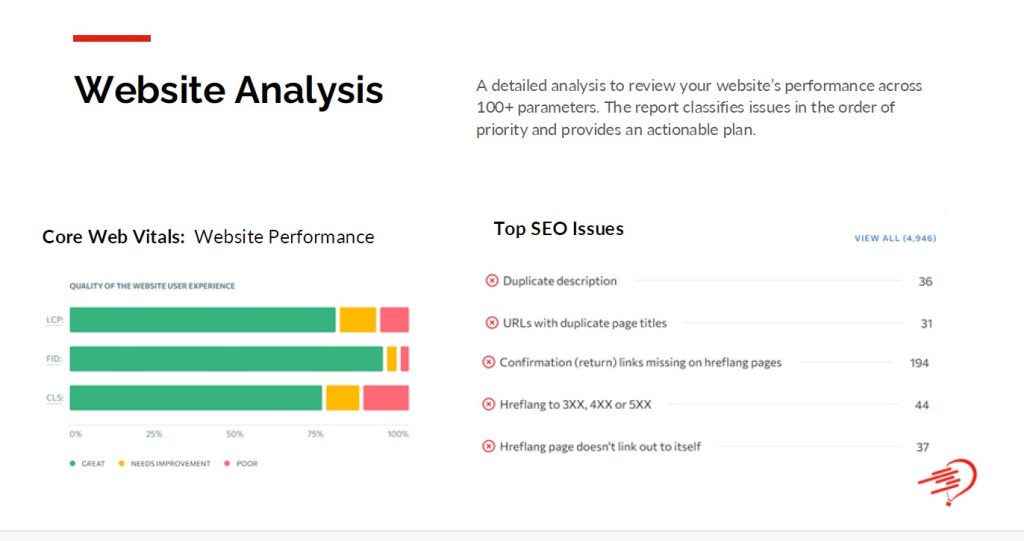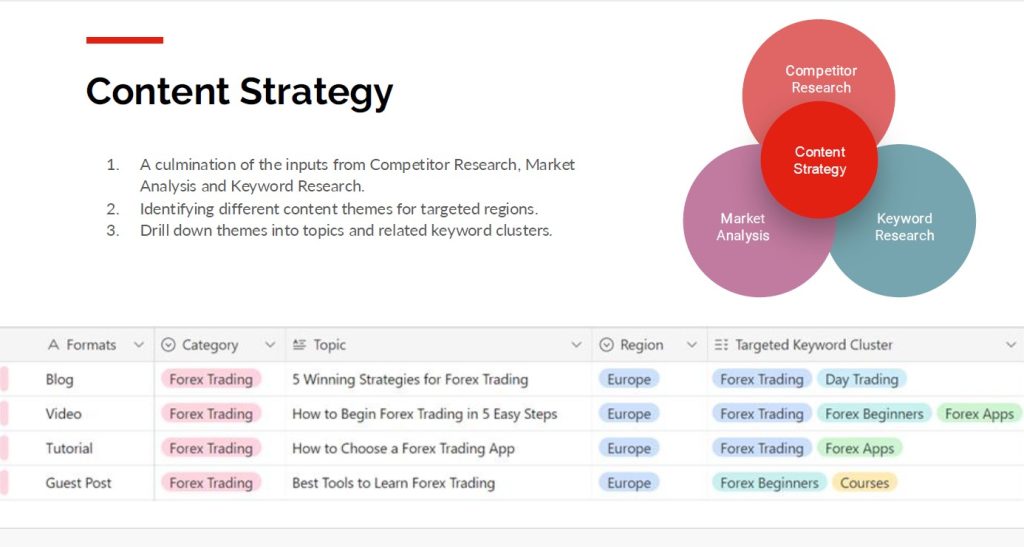Google rolled out another core update in March 2025 and publishers were holding their breath to see what that meant for their sites. Remember the update a year ago that wrecked havoc by de-ranking thousands of sites and saw HubSpot lose 80% of it’s traffic? Website owners and SEO managers scrambled to identify and fix issues. The key takeaway is that SEO is not a one-time activity and companies need to be working on it consistently. In this article, we will unpack what is an SEO audit and the parameters you need to be checking and covering.
Contentworks is a leading content marketing and SEO agency working with financial services firms. We help brands understand how their site’s domain authority and search engine results pages (SERPs) are performing and what needs fixing. As a financial services marketing agency, we work with clients to create authoritative content that is engaging, compliant and ticks all the SEO boxes you need.
What Is An SEO Content Audit?
An SEO content audit is a comprehensive analysis of all the content on a website to determine its effectiveness in achieving business goals, improving search engine rankings, and engaging the target audience. This audit typically involves assessing:
- Content quality: Is the content valuable, well-written, and up-to-date? Is there any duplicate or low quality content that can harm your SEO?
- SEO performance: How well is the content ranking on search engines? It will examine keyword rankings, organic traffic, click-through rates (CTR), backlinks and domain authority.
- User engagement: Are visitors interacting with the content (e.g. time on page, bounce rates)?
- Optimises On-Page Elements: Are meta titles and descriptions, alt tags, optimal? Does it have well-structured internal linking?
- Technical factors: Are there broken links, slow-loading pages, mobile or indexing issues that need attention?
The goal is to identify content that needs to be updated, removed, or optimised to align with current SEO best practices and audience expectations.
SEO Is Not A One-Time Thing
Constantly changing paradigms highlight the need for consistent SEO efforts. Here are some takeaways on the latest SEO trends you need to know:
- Core Updates by Google target low-quality, unoriginal content.
- SEO has moved from keyword targeting to contextual
- Focus has shifted to content relevance that can be used by new GenAI capabilities in Search.
- Content themes based on keyword clusters are pivotal to provide a holistic view of content to search engines.
- Weekly monitoring of keywords and links performance is the only way to up your SEO game.
- Monitoring the organic traffic of your competitors can prove to be a goldmine of opportunities.
- Being on top of your website performance in regard to the Core Web Vitals is a must.
Why Do You Need An SEO Content Audit?
Your SEO directly impacts your website’s ability to attract and retain users. Here’s why conducting an audit is important:
- Improves Search Engine Rankings: Identify pages that need updates or optimisation, helping them rank higher in search results.
- Enhances User Experience: Discover outdated information, poor readability, and broken links, which can frustrate users.
- Identifies High-Performing Content: Which pieces of content are driving traffic and conversions, so you can double down on that activity. Also optimise content for conversions.
- Fixes SEO Issues: Uncover technical SEO problems such as duplicate content, missing meta tags, and keyword cannibalization, all of which can negatively impact rankings.
What You Should Be Auditing
An SEO content audit evaluates a website’s existing content to identify strengths, weaknesses, and opportunities for improvement. By conducting a thorough audit, businesses can enhance their online presence, improve rankings, and maximise the effectiveness of their content marketing strategy. But what exactly does an SEO content audit entail, and why is it necessary? Here’s what the Contentworks SEO audit would analyse for a hypothetical Forex Broker.
Website Analysis
A detailed analysis to review your website’s performance across 100+ parameters. This thorough SEO audit classifies issues in the order of priority and provides an actionable plan.

Keyword Research and Analysis
Before creating articles, landing pages or web page text, keyword (KW) research and analysis is core to a crafting high-performing content. We analyse what your target audience are looking for on Google, what your competitors are doing and from there build out a content plan.
- Comprehensive keyword research identifies related keyword clusters and “People Also Ask” segments. It will bring out which keywords can bring in maximum traffic with comparatively lower effort. Keyword performance is ideally monitored on a regular basis.
- Competitor analysis discovers top organic keywords use by your competitors. It aims to understand their content and link strategy used to attract organic traffic.
Identifying clusters
This allows you to arrange content for easy navigation for users and search engine bots. A proper analysis of keyword clusters means you know the search volume for different terms, and the difficulty to rank for those KWs. This allows you to create realistic expectations and KPI for your content marketing plan.
These data-driven insights allow you to develop your content calendar. A detailed action plan for all content activities and how to market them.

Need awesome content that is optimised for search engines, compliant for your regulators and will delight your audience? The Contentworks financial content team of writers and editors stay abreast of the latest industry trends.
Monthly SEO Audits
Some SEO activity like KW research and content planning will be done on a quarterly or annual basis. However, your SEO needs to be analysed on a monthly basis to ensure optimal performance. Here’s what your Contentworks SEO team will be checking:
- Tracking of key SEO parameters.
- Checking changes in keyword rankings over a month. Analyse the reasons for keyword changes in Top 10.
- Summarised information on backlinks and overall website health status.
- Data on goals and conversions by integrating Google Analytics.
Best Time To Do An SEO Content Audit
An SEO content audit should not be a one-time event; rather, it should be a recurring process to keep content optimised and competitive. However, there are specific instances when conducting an audit becomes particularly essential:
- Before a Website Redesign or Migration: A website redesign or migration can impact SEO rankings significantly. An audit helps identify which content should be retained, updated, or removed to maintain search visibility.
- After Significant Algorithm Updates: Google frequently updates its search algorithms. If rankings drop or fluctuate significantly, an audit helps pinpoint issues that need adjustment to align with new ranking factors.
- Periodically (Quarterly or Annually): For best results, businesses should conduct content audits at least once or twice a year to keep their content fresh and aligned with SEO trends.
- When Traffic and Engagement Drop: If website analytics show declining traffic, increased bounce rates, or lower conversion rates, an audit can reveal possible causes and provide guidance on actions to take.
Ready For Your SEO Audit?
An SEO content audit is a powerful tool that helps businesses refine their content strategy, improve rankings, and enhance user engagement. By systematically evaluating and optimising content, businesses ensure that their website remains relevant, authoritative, and competitive in the digital landscape. Regular audits are not just about fixing issues but also about identifying new opportunities for growth. Whether you’re looking to recover from a traffic decline, improve conversions, or stay ahead of competitors, an SEO content audit is an essential practice that delivers long-term benefits.
Contact the team at Contentworks for a comprehensive SEO audit, content marketing strategy and effective content creation.
